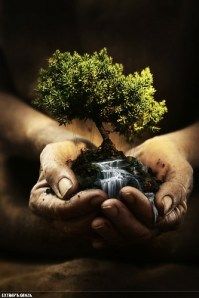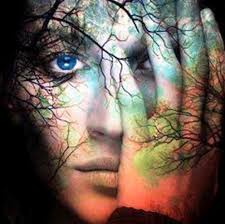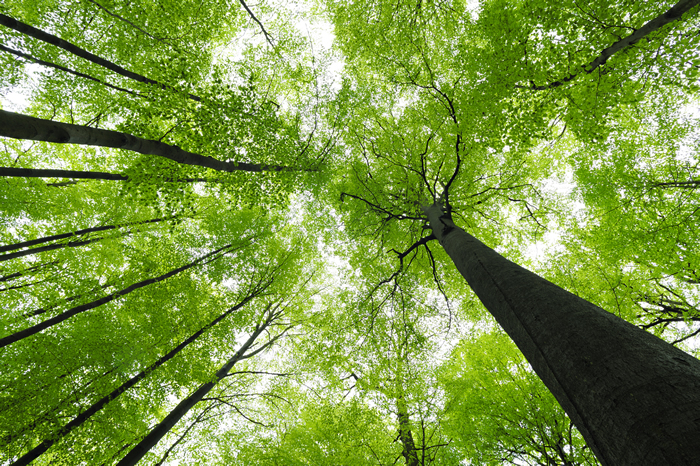The local weekly featured two environmentalists just before the holiday that are actively promoting the idea of “Earth hospice.” If anything, shouldn’t they call it “Human hospice?”
 It’s strange how in one of the most beautiful and livable small cities in California there is a palpable pessimism about the human prospect. As a local writer proclaimed in this issue, “In environmental circles, “We’re screwed!” is becoming a manta.” He went on to say that “grieving is becoming a central focus.”
It’s strange how in one of the most beautiful and livable small cities in California there is a palpable pessimism about the human prospect. As a local writer proclaimed in this issue, “In environmental circles, “We’re screwed!” is becoming a manta.” He went on to say that “grieving is becoming a central focus.”
Adding contradiction and the all-too-American-trait of trying to have it both ways to his despair, he ends his piece with this bit of disingenuousness: “I haven’t given up, any more than it would make sense to give up on life because I’m presented with a terminal diagnosis.” Egad.
This pernicious stuff is representative of the general thinking in Chico where the so-called progressive or alternative community is concerned.
In such a climate, which conflates the fate of the earth with the fate of humanity, thereby contributing to the demise of both, misanthropy has become de rigueur. It’s no wonder that I feel like a fish out of water. Last week a self-admittedly anti-social friend accused me of the worst sin—being an optimist.
An optimist I’m not, but I haven’t given up on our age, much less on humanity. I’m still asking: Can a few people, as a microcosm of humanity, change course now, before the inevitable ecological collapse occurs?
For if we continue to hopelessly wait, as so many hapless misanthropists prescribe, until after the collapse occurs, it will be too late for the foreseeable future.
The precedent in our times is the simultaneous collapse of the superpowers 25 years ago, when the USSR collapsed economically and politically, while the US collapsed socially and psychologically in the early 1990’s.
Because no true alternative course was in place when the previous world order collapsed, and because America did a decade-long victory dance as “the sole remaining superpower,” we got the 9.11 attacks by al Qaeda in Afghanistan (where the superpowers waged a proxy war that Russia lost), the Bush-Cheney invasion of Iraq initiating a total destabilization of the Middle East, and the global terrorism and mass shootings of today.
A few months ago I attended a lecture by a marine biologist. He gave a graphic description of the physical and emotional reality behind climate change. This fellow lives in Hawaii and has been doing research diving along reefs in Indonesia for many years.
Last year he took his usual trip, but when he reached his favorite section of a reef, a place of magnificent undersea variety and color, he came upon a scene of gray death. Barely restraining his emotion, his voice thick with sorrow, he said, “It is a strange experience to cry with a diving mask on.”
Then he showed pictures of his two young, beautiful children, and said, “I fear for the kind of world they may inherit.”
Talking afterward to other men (it was a men’s gathering with the stated intent to confront the crisis of climate change), it was fascinating, if also disturbing, to see the differences in emotional and intellectual interpretation.
For a few, including me, the takeaway was a greater feeling of crisis and urgency; for others, the majority, the takeaway was the same as the sentiment expressed in the local weekly—“we’re screwed.”
Besides the column by the “Earth hospice” proponent, the local weekly featured the grassroots environmental work of the groundskeeper of a consortium of Buddhist groups in town. He’s spearheading a local chapter of 350.org, the international organization that focuses on climate change. Citing how many local followers the group has on Facebook (naturally), he’s quoted as saying, “It’s blossoming.”
I’ve talked with this fellow, and he espouses an insidious brand of misanthropy, which gleefully maintains that humanity will be extinct within 50 years. The underground attitude was greatly reinforced when a doomsday guru, Guy McPherson, came to town last year with his 47 feedback loop presentation supposedly proving that it’s too late to do anything but mourn and grab what life you can.
Pointing out that such thinking is the very definition of self-fulfilling prophecy, and that another phrase for McPherson’s feedback loops is vicious circles, did not go over well with the local environmentalist. Nor did questioning the blatant contradiction between trying to save the Earth while believing humankind will be extinct within 50 years.
Darkness is not some kind of diabolical supernatural force in a battlefield of good vs. evil. It is man-made. At present it is obviously the greater force in human consciousness, working for destructiveness and lifelessness. Self-hatred (misanthropy by its rightful name) is also a human phenomenon, and it’s doing darkness’s bidding.
Is the light of intelligence, which exists to a lesser degree in human consciousness (though it’s not man-made), like the light in a dark room around a black door? Is that light intensifying, so that when enough people open the door, it will flood the stygian darkness of this world?
Let’s not indulge in hope, but keep doing our own spadework. The light and the door are within us.
Martin LeFevre

